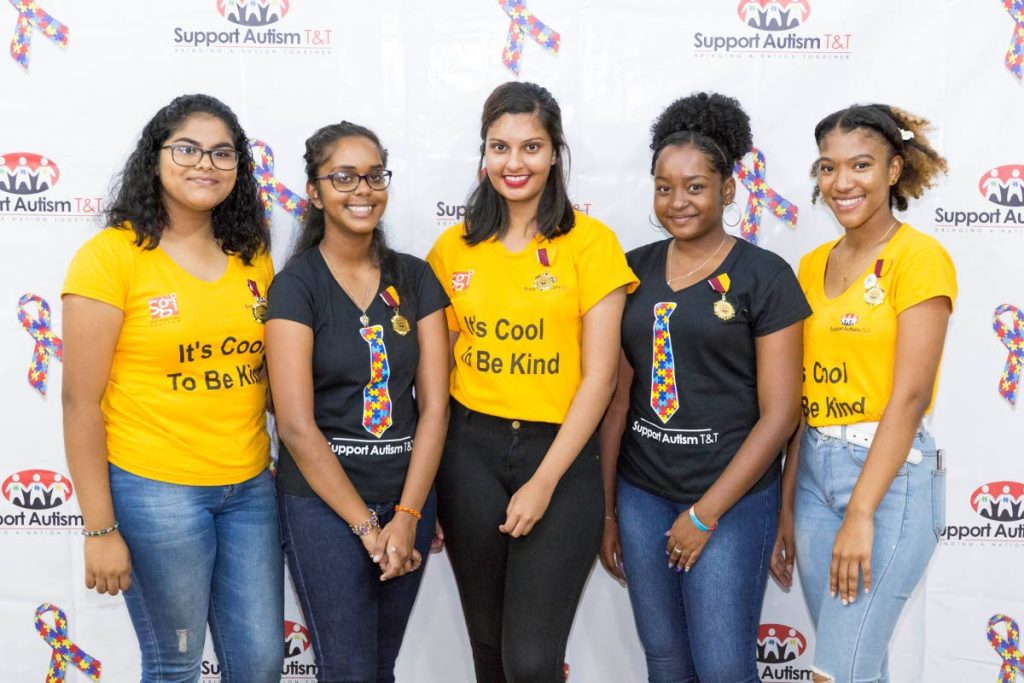The invisibility of autism

DR RADICA MAHASE
"My name is Ayanna and I am telling you April 2020 is one of the worst months of my life! Not because of covid19 and the fact that we have to stay at home. It was one of the worst months because I realised how invisible my daughter really is in this country.
Adriana is ten years old and I have never felt so hopeless and insignificant since the day she was diagnosed with autism. Because on a day (April 2) when we celebrated World Autism Awareness Day, and throughout the month there was hardly any mention of autism and what the government is doing to help children like Adriana.
I understand that we’re in the middle of covid19 measures and everyone is focusing on that right now but seriously, you are telling me that the President, who, from what I understand, is supposed to be an advocate for children, did not even think it’s important to make a statement about those with autism?
The Office of the Prime Minister issued a press release on April 2 that highlighted various aspects of autism with nothing about what it was doing to help those living with autism. Various other governmental bodies posted flyers and that was it! For the rest of April there was no mention of autism by anyone in authority. At no point did any of these government ministries focus on what they are doing or what they plan to do to help children like Adriana.
As a parent of a child with autism this bothers me so much; to know that no one really cares about my child. I feel like she is a third-class citizen; she is invisible. The government just don’t see autism as important enough to do something for people with autism. That just tells me that nobody is going to do anything to make my child’s life better, that the government is not even thinking about Adriana.”

Ayanna is not the only parent who feels like this. This year, with the focus on covid19 and stay-at-home measures, World Autism Awareness Day passed under the radar. It was fleetingly acknowledged by governmental bodies, with no real focus on those with autism.
What makes it even worst is that the idea of celebrating April 2 as World Autism Awareness Day comes from the UN General Assembly. It is not a day created haphazardly by any one individual; the UN decided on this day “to highlight the need to help improve the quality of life of those with autism so they can lead full and meaningful lives as an integral part of society.” The UN recognises that, “The rate of autism in all regions of the world is high and the lack of understanding has a tremendous impact on the individuals, their families and communities.”
Yet, here in TT, there is hardly any recognition by government of a UN-declared day/month; there is no acknowledgement that autism is or can become a major development issue affecting the future of many individuals. Given the covid19 situation no one expected any grand event, but surely those at the top could have at least taken to social media to highlight what they are doing or can do to help individuals with autism.
In the midst of covid19 planning autism and special needs in general were not mentioned in relation to medical care or even online teaching by the Ministry of Education. The only immediate, proactive government measure was the allowance of an additional $150 per family member for those already in receipt of the disability grant by the Ministry of Social Development and Family Services. Other than that, autism remained in the background.
Government’s lack of interest is the reason why parents and caregivers feel isolated and marginalised. Autism advocates can keep calling for more policies and opportunities but nothing will change until government acknowledges that there is a need and that there are individuals here in TT who are denied basic human rights.
In his message this year, UN Secretary General Antonio Guterres said, “Persons with autism have the right to self-determination, independence and autonomy, as well as the right to education and employment on an equal basis with others...On World Autism Awareness Day, let us stand together, support each other and show solidarity with persons with autism.”
The TT Government has not heard him.
Dr Radica Mahase is the founder/director, Support Autism T&T


Comments
"The invisibility of autism"